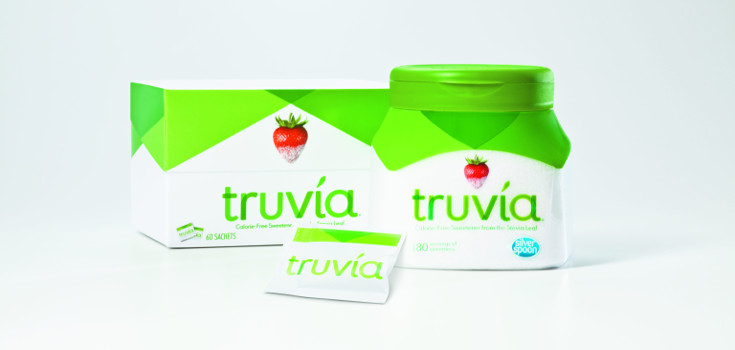$6.1 Million Ruling: Truvia Sweetener is Really Not ‘All Natural’

It can be downright confusing when trying to keep up with the antics of the biotech problem children. Watching Cargill, the largest privately held, Big Ag company in the world, manipulate its way through our food system is no different. While having used palm-oils responsible for deforestation in the Amazon, now they will be forced to pay over $6.1 million for falsely claiming that their artificial sweetener is ‘all natural.’
Cargill has even had the American Farm Association eating out of its hands while taking business from small family farms and awarding subsidies to Big Ag through a team of 22 well-established government lobbyists. With their latest propaganda being turned on its head regarding ‘natural’ sweeteners, called Truvia, its about time that they had to pay up for their misdeeds.
Four class action lawsuits were filed, and now a court in Hawaii will settle those suits against Cargill for their false advertising claims that Truvia is a ‘natural’ sugar substitute. But this ‘natural sugar substitute’ actually contains 2 very unnatural and carcinogenic substances: Reb-A steviol glycoside (a chemical concoction if there ever was one) and the synthetic, chemical bulking agent, erythritol. Though Reb-A is obtained form the Stevia plant, its chemical process causes it to break down into harmful substances. Erythritol is also extracted from GM corn.
Cargill has also agreed to:
- Add to their product labels a link that redirects customers to their website to clarify these very unnatural ingredients.
- Clarify their statements that Truvia is “nature’s calorie-free sweetener”, and “Truvia Natural sweetener provides the same sweetness as two tablespoons of sugar” on its website.
- Remove statements form their products that say ‘similar to making tea’ since the fermentation process using GMO corn to make Truvia is nothing like steeping tea.
Related: Pepsi’s ‘Naked Juice’ Forced to Drop ‘All Natural’ Label Amid $9 Million Lawsuit
The plaintiffs charging Cargill are demanding more truth and transparency and won’t stand for the company’s use of ‘natural’ when its product contains GMO and synthetic chemicals.
Attorney’s say the $6.1 million lawsuit measures up to similar claims against companies put forth by concerned plaintiffs. Attorney’s fees will also be paid by Cargill – over $1.83 million’s worth.
Truvia, according to Cargill, is a non-caloric sweetener made from rebiana, an isolated and purified extract of the stevia leaf – a natural sweetener source originally from South America and now used in many corners of the world. Stevia has been considered safe by many experts (though not all), but it has not been approved by the FDA as a food ingredient.
Artificial sweeteners like Truvia are excitotoxins. Truvia is also 99.9% pure genetically modified erythritol and less than a half percent of something made from Stevia—just so the company can can lie to you about its ingredients.
Our bodies have no idea how to metabolize these ‘fake’ sugars, and they can cause irreversible harm to the endocrine system. Consuming them can lead to insulin resistance, and eventually diabetes as well as severe weight gain.
How can Cargill make this claim on their website when Truvia is almost purely GMO-corn derived?
Think again Big Ag.

Please note that your statement “Erythritol is also extracted from GM corn” does not hold true for all Erythritol on the market. Honeyville Farms specifically states theirs is Non-GMO. It is C Eridex Granular Erythritol.
I’m not disputing your research, just interested if you consider processed cane sugar as “Natural” or “Synthetic”? In the EPA document http://www.epa.gov/ttn/chief/ap42/ch09/final/c9s10-1a.pdf it outlines the use of Lime, CO2 mainly from boiler flue gas, plyacrylamide flocculent, phosphoric acid, Isopropyl alcohol and the sometimes use of synthetic resins in the making of that product.
Stevia is a natural sweetener and very harmless. Truvia is a take on this ? Just use stevia but I guess there is no money to be made without a patent ?